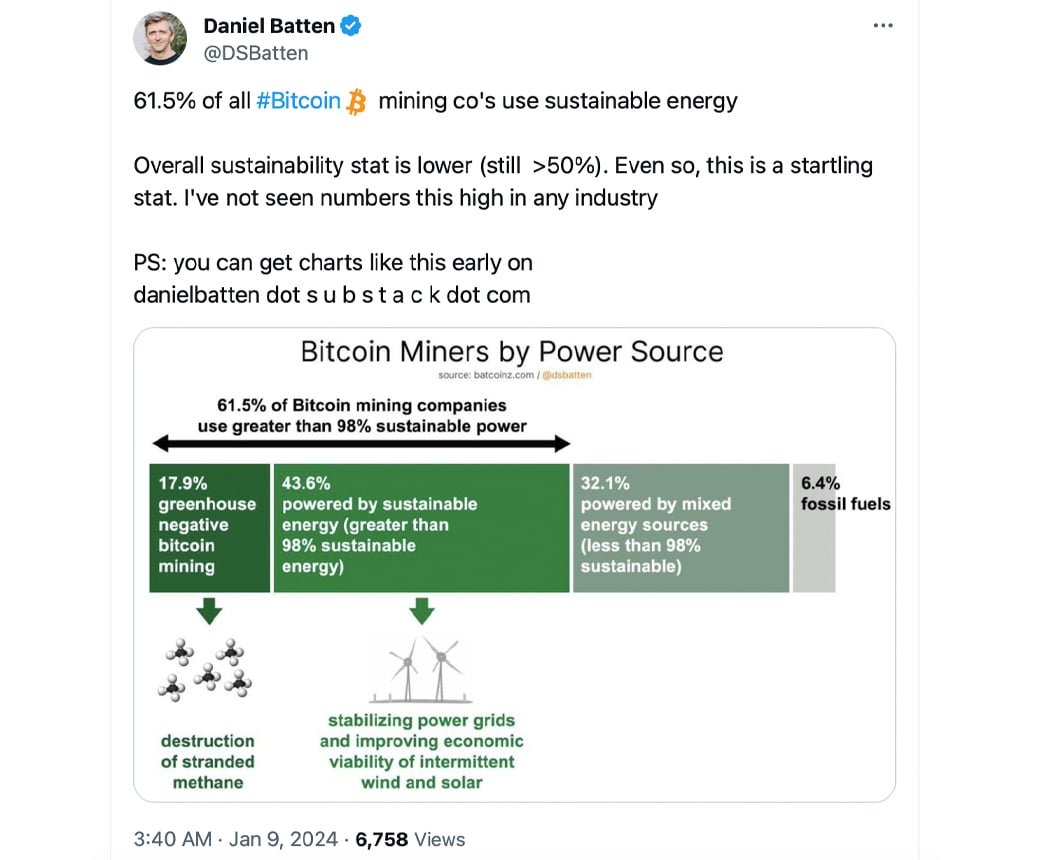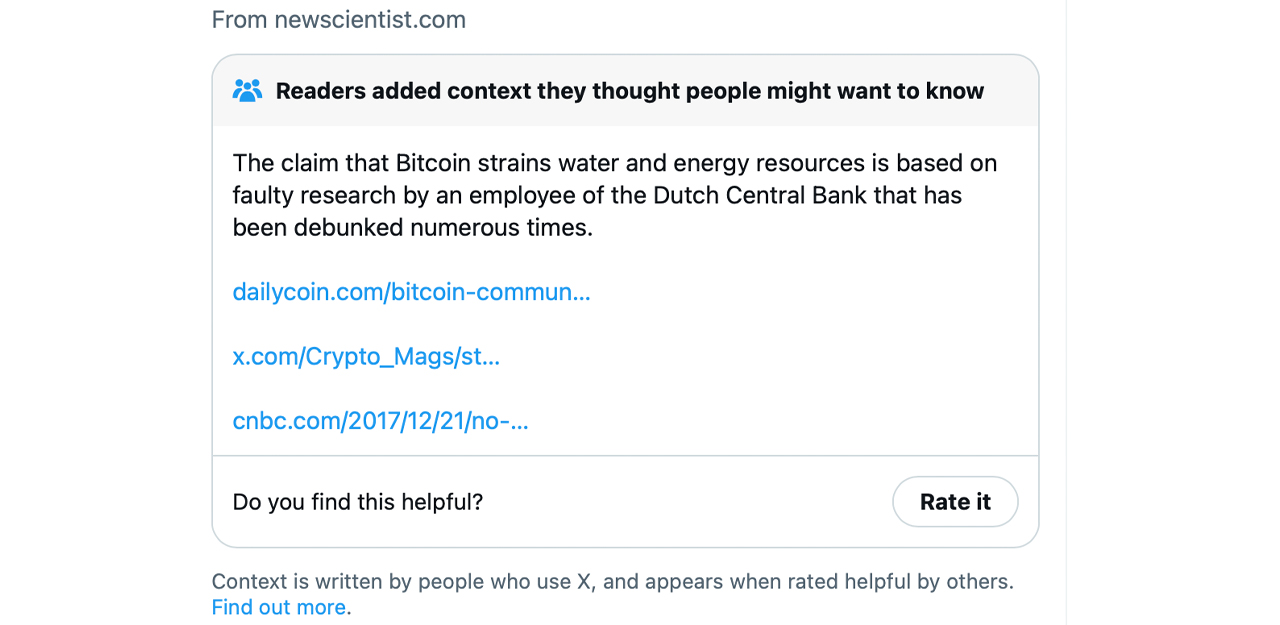On Jan. 8, 2024, a New Scientist article sparked debate by questioning whether nations ought to consider banning bitcoin due to its environmental footprint. The editorial has drawn significant criticism from numerous bitcoin supporters. Environmental, social, and governance (ESG) expert Daniel Batten sharply lambasted the article, labeling it as “bad science, not new science” and accusing it of using “widely discredited methodologies.”
Experts Criticize New Scientist Editorial for Misrepresenting Bitcoin’s Environmental Impact
Numerous bitcoin enthusiasts expressed dissatisfaction with the recent New Scientist editorial released on Monday. The piece, written by Matthew Sparkes, debates whether countries should outlaw bitcoin (BTC) due to its energy-intensive mining practices. Sparkes alleges that BTC miners are “unwilling to take action to curb the cryptocurrency’s energy and water use,” despite many miners utilizing renewable energy sources and reducing flare gas emissions to mine the digital currency.

Sparkes notes that “some campaigners” advocate for governmental intervention in this matter. The writer also mentions efforts to contact seven different bitcoin mining companies and the Bitcoin Mining Council for their perspectives, stating that none of these entities responded to requests for an interview. However, Sparkes did succeed in engaging with some “campaigners” who support government involvement, including Alex de Vries.
De Vries, formerly associated with De Nederlandsche Bank NV (DNB), the central bank of the Netherlands, is often viewed by bitcoin advocates as having data that carries extreme bias and inaccuracies toward the Bitcoin network’s use of energy. The New Scientist article did not fare well on the social media platform X (formerly known as Twitter), where crypto advocates shared their opinions on the topic. “This is false just as a heads up,” Nic Carter wrote to the New Scientist social media account.
Carter shared another tweet that touched upon the article when he remarked:
Community note crowd – this is false. [The real] number is 50 bps, not 70 (not a huge [difference] but still [a] 40% overestimate). Bitcoin consumption: 153TWh/year (CBECI); 157TWh/year (CM). Electricity generation worldwide 2022: 29k TWh. 153/29000 = 0.53%.
ESG analyst Daniel Batten also chimed in. “This is bad science, not new science,” Batten said. “Using widely discredited methodologies, 2-year-old data that has since changed fundamentally, [and] not looking at positive externalities. You have adopted a throwback position that even 25 out of 26 branches of Greenpeace have not taken” Another person responded to Batten’s comment and said, “Precisely. Shockingly bad article. Sparkes is demonstrably disingenuous and the article is anti-scientific.”

The article from New Scientist, much like a significant portion of contemporary science, has ignited skepticism regarding how modern scientists and the academic elite have tarnished the reputation of science, attempting to persuade the general public that 2+2 equals 5. One bitcoiner revealed that they were blocked by the author of the New Scientist piece, Sparkes, for simply making inquiries about the subject. Reportedly, the New Scientist author deleted his X account and at the time of writing, the account does not exist on X.
What do you think about the critique of the New Scientist article? Share your thoughts and opinions about this subject in the comments section below.
 news.bitcoin.com
news.bitcoin.com